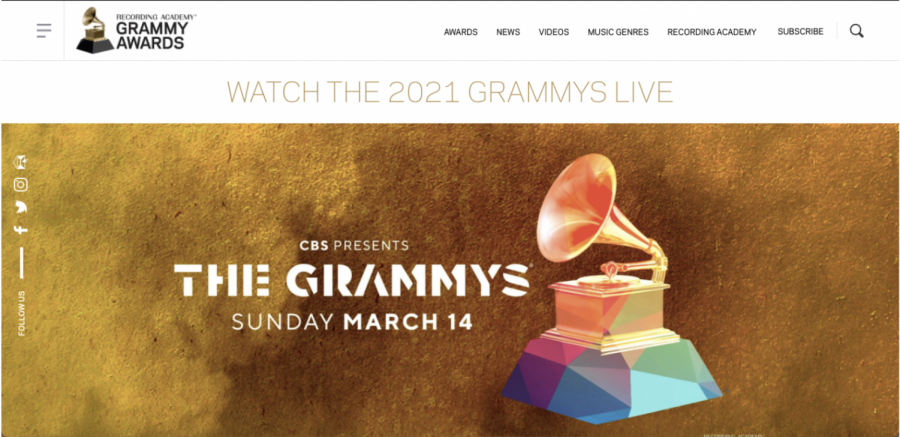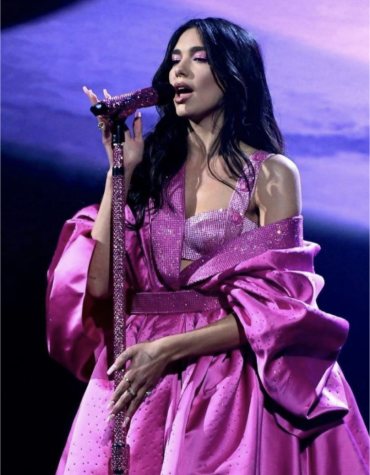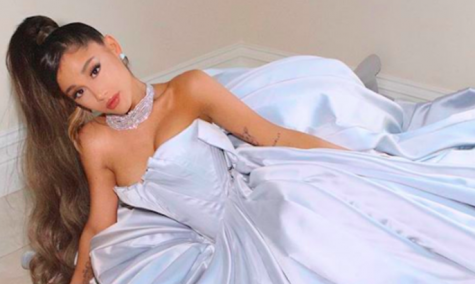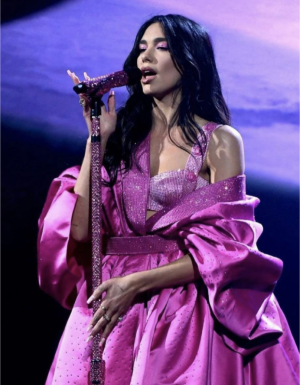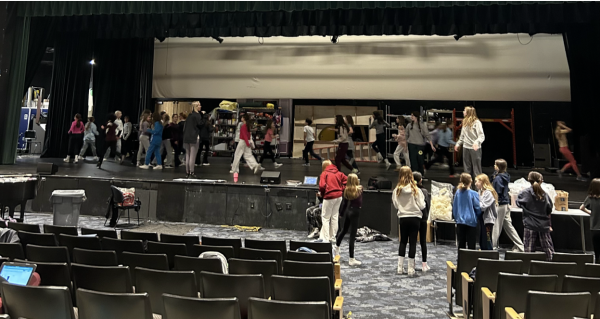Students decide whether the Grammys are critically acclaimed, or in need of critical reform
Due to the safety precautions surrounding COVID 19, the 63rd Grammys was available for live streaming on grammy.com, for all at home viewers to enjoy.
The 63rd Grammy awards, like the rest of the world, went through many changes this year. A semi-virtual event run by a new executive producer in the past forty years, and a new host: Trever Noah. The Grammy nominees included veterans such as Beyonce, Post Malone, Ariana Grande and Taylor Swift, but there was also a variety of new artists such as Megan Thee Stallion, Doja Cat, Ingrid Andress and Phoebe Bridgers.
Some Staples students were enthusiastic about the outcome of the night and the Academy’s ability to continue its long-time tradition during the pandemic, while others felt that the Grammys fell flat and were unable to deliver for the listeners at home.
Many of the nominations of the night were of artists who continued to create music during quarantine in the comfort of their own home. One of these singers was Taylor Swift.
“I’m excited that Taylor Swift won, especially for an album that was so different from her other music,” Piper Cohen ’22 said. “I think it was cool to see how grateful she was and that other artists in the category supported her, like HAIM.”
Taylor Swift has won a total of 11 Grammys in her career, but this was her first album of the year win since her 1989 album back in 2016. She made history by becoming the first female artist ever to win album of the year three times. She wasn’t the only one breaking records, though: Beyonce won best music video, best rap song, best rap performance and best R&B performance, breaking Grammy history as the most wins ever for both male and female artists.
In addition to the trailblazing wins of the night, students were happily surprised at the outcome of the event, despite the ongoing pandemic that threatened its production this year.
“I really liked Taylor Swift’s performance […], I also really liked Dua Lipa’s performance, and I really liked her outfit,” Madelyn Spera ’23 said. “I think they did do a good job doing it during the pandemic.”
Keeping the pandemic at the forefront of its decision making, the Grammys staged an outdoor, socially-distanced event, with a few music industry attendees wearing masks and sitting at spaced tables. Masks were only removed by the winners of the night when they gave their acceptance speeches on stage. The backdrop of the ceremony was held in front of an authentic backdrop, not a zoom video such as the one fashioned during the Golden Globes back in February. The host Trevor Noah cracked several COVID-19-related jokes throughout the ceremony, while also maintaining the integrity of the event stating that glitches and other interruptions would not occur, because of a set design thought out a year prior when knowledge was accumulating of the encroaching virus.
While some Staples students believe that the Grammys was a well planned event and are happy with the outcomes, other students don’t agree with the academy’s choices for winners.
A majority of the winners did not deserve to win their awards as they seemed to be just industry choices rather than what the people actually wanted.
— Samir Mott ’22
“I hated this year’s Grammys. The censoring of the performances detracted from the songs and the artists’ interpretation,” Samir Mott ’22 said. “A majority of the winners did not deserve to win their awards as they seemed to be just industry choices rather than what the people actually wanted.”
Artists such as Lizzo and Harry Styles had their speeches covered in bleeps to censor foul language. While there were semi-nude performances, it was the amount of censorship during the speeches that have many viewers in an uproar.
Not only has the censorship sparked controversy, but also the nominations themselves. The Weeknd’s song “Blinding Lights,” which received 2.72 billion subscription stream equivalents globally, did not receive a nomination at the Grammys. The Weeknd has joined a growing list of Black stars such as Drake, Kanye West and Frank Ocean who have publicly rebuked the Grammys due to the Grammys’ exclusion of people of color in top awards.
Still, other Staples students believe that after watching the Grammys, the winners are no longer representative of being any more successful or appreciated than the other nominees.
“Most of the artists I wanted didn’t end up winning, which was kind of disappointing, but I feel like it’s so hard to judge the winners now that artists are becoming more and more diverse in their music,” Samantha Taylor ’21 said. “So I don’t necessarily disagree with most of the winners, but it really depends on one’s taste.

After spending her summer at a New York Times program in Italy studying politics and perspectives, exploring a new topic in a new setting outside of her...











































